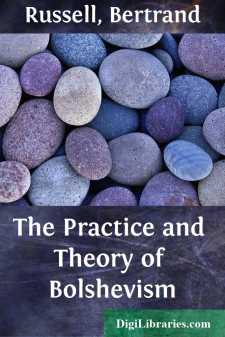History
- Africa 30
- Americas (North Central South West Indies) 50
- Ancient 68
- Asia 58
- Australia & New Zealand 8
- Canada 41
- Caribbean & West Indies 1
- Civilization 20
- Eastern Europe 12
- Europe 310
- Expeditions & Discoveries 60
- General 77
- Historical Geography 1
- Jewish 9
- Latin America 3
- Medieval 8
- Middle East 13
- Military 248
- Revolutionary 8
- Study & Teaching 5
- United States 353
- Western Europe 56
- World 13
History Books
Sort by:
CHAPTER I—THE EIGHTEENTH THEBAN DYNASTY—(continued) Thutmosis III.: the organisation of the Syrian provinces—Amenothes III.: the royal worshippers of Atonû. In the year XXXIV. the Egyptians reappeared in Zahi. The people of Anaugasa having revolted, two of their towns were taken, a third surrendered, while the chiefs of the Lotanû hastened to meet their lord with their usual tribute. Advantage...
more...
PREFACE The following pages contain reports of addresses delivered by Commissioner Howard, of our International Headquarters, during an important series of Holiness Meetings held in the Congress Hall, London, principally in 1908. Those Meetings were widely used by God, and at my request the Commissioner has revised the shorthand reports of his words for this volume. We now send forth his messages in...
more...
DRUG SUPPLIES IN THE AMERICAN REVOLUTION by George B. Griffenhagen At the start of the Revolution, the Colonies were cut off from the source of their usual drug supply, England. A few drugs trickled through from the West Indies, but by 1776 there was an acute shortage. Lack of coordination and transportation resulted in a scarcity of drugs for the army hospitals even while druggists in other areas...
more...
by:
Emma Helen Blair
PREFACE In this volume is presented the first installment of Dr. Antonio de Morga's Sucesos de las Islas Filipinas. Events here described cover the years 1493-1603, and the history proper of the islands from 1565. Morga's work is important, as being written by a royal official and a keen observer and participator in affairs. Consequently he touches more on the practical everyday affairs of...
more...
PREFACE. There were no prefatory remarks to the first and second editions of the following work. It was thought, when the printer made his final call for copy, that a preface might be written with more propriety if the public should indicate sufficient interest in the book to make its improvement and enlargement necessary. That interest, owing to the theme rather than the treatment, has not been...
more...
by:
Samuel Smiles
Since the appearance of this book in its original form, some seventeen years since, the construction of Railways has continued to make extraordinary progress. Although Great Britain, first in the field, had then, after about twenty-five years’ work, expended nearly 300 millions sterling in the construction of 8300 miles of railway, it has, during the last seventeen years, expended about 288...
more...
by:
Bertrand Russell
I To understand Bolshevism it is not sufficient to know facts; it is necessary also to enter with sympathy or imagination into a new spirit. The chief thing that the Bolsheviks have done is to create a hope, or at any rate to make strong and widespread a hope which was formerly confined to a few. This aspect of the movement is as easy to grasp at a distance as it is in Russia—perhaps even easier,...
more...
CHAPTER I—THE CRUSADERS IN EGYPT The Ideal of the Crusader: Saladin's Campaign: Richard I. in Palestine: Siege of Damietta: St. Louis in Egypt: The Mamluks: Beybars' Policy. The traditional history of the Christian Church has generally maintained that the Crusades were due solely to religious influence and sprang from ideal and moral motives: those hundreds of thousands of warriors who went...
more...
CHRISTOPHER COLUMBUS CB. 1. Birth and boyhood of Columbus.—Christopher Columbus,[2] the discoverer of America, was born at Genoa,[3] a seaport of Italy, more than four hundred and fifty years ago. His father was a wool-comber.[4] Christopher did not care to learn that trade, but wanted to become a sailor. Seeing the boy's strong liking for the sea, his father sent him to a school where he could...
more...
CHAPTER I The topography of a country is to some extent a prophecy of its future. Had there been no Mississippi coursing for three thousand miles through the North American Continent, no Ohio and Missouri bisecting it from east to west, no great inland seas indenting and watering it, no fertile prairies stretching across its vast areas, how different would have been the history of our own land. Russia...
more...











